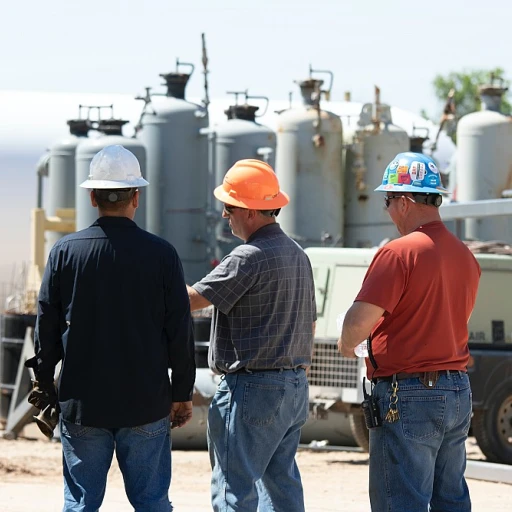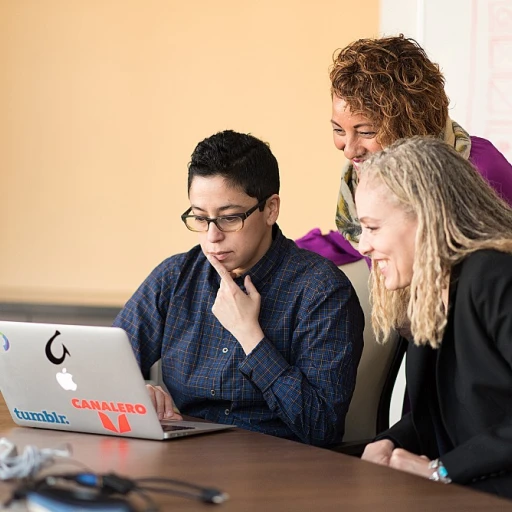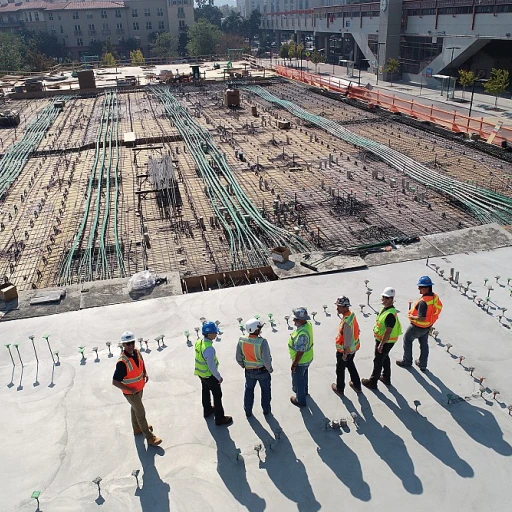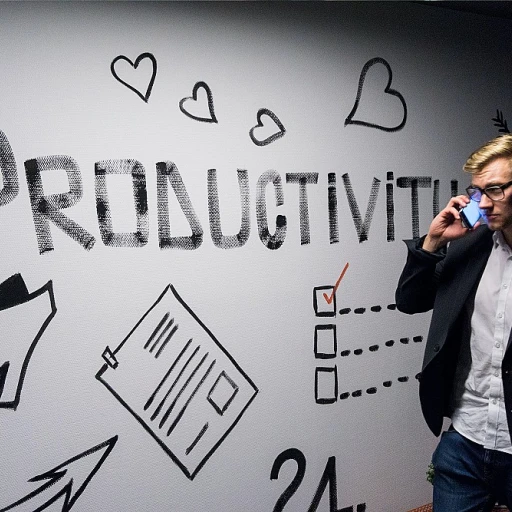
Understanding the Importance of Teamwork in Employee Retention
The Significance of Collaborating Effectively in Boosting Employee Retention
Collaborative efforts within a team can significantly impact employee retention. When teams work together seamlessly, they foster a positive work environment that motivates employees and promotes a sense of belonging. This, in turn, contributes to lowering turnover rates. Teamwork's influence is not limited to immediate tasks; it extends to overall job satisfaction and engagement over the long term.
Incorporating teamwork in performance reviews highlights the importance placed on cooperation and joint problem-solving. These reviews are an opportunity to emphasize constructive feedback and positive review comments, which recognize the quality work of team members. Such feedback encourages employees to consistently aim for both individual and collective goals.
To improve employee retention, it's essential to clearly communicate expectations and recognize achievements that demonstrate strong communication skills and team performance. Positive examples of collaborative efforts can motivate other team members and drive overall team success.
Employees who feel acknowledged for their contribution to a team's success are likely to demonstrate engagement and commitment. This commitment is crucial for long-term growth and development. Performance management strategies that focus on teamwork create an environment where each team member can thrive, thus improving overall employee performance.
For more insights on optimizing performance reviews, consider exploring questions to elevate your performance review. Emphasizing teamwork in these assessments captures not only the team's achievements but also identifies potential areas for improvement.
Crafting Constructive Feedback for Teamwork
Developing Constructive Insights for Enhanced Collaboration
Providing effective feedback is critical for team performance reviews. When crafting feedback about teamwork, it's essential to focus on both strengths and areas that need improvement. Constructive feedback is not just about pointing out mistakes; it's about facilitating growth and development. To create a more structured approach to feedback, consider these strategies:- Highlight Specific Examples: Use concrete examples to illustrate your points. Instead of saying, "Your communication skills need improvement," provide a specific instance where communication faltered, and offer suggestions on how to improve.
- Balance Positive and Constructive Comments: Always start with the positive aspects. Acknowledging what the team does well sets a constructive tone for the review. Highlighting strong problem-solving skills or consistent quality work can motivate and inspire.
- Encourage an Open Dialogue: Promote a two-way conversation where team members feel comfortable expressing their views. This can enhance understanding and lead to effective solutions for any issues.
Positive Phrases for Teamwork Evaluation
Utilizing Supportive Language to Encourage Collaboration
Fostering a positive work environment where team members feel valued and engaged begins with the right performance review phrases. Emphasizing the role of supportive language can not only bolster employee performance but also build a foundation for consistent growth. Clear and concise language is key when delivering performance feedback. Highlighting strengths in communication skills or decision-making abilities is an effective way to acknowledge a team member's value. For instance, using phrases such as "consistently demonstrates strong problem-solving skills" or "effectively collaborates with team members to achieve team success" reinforces the importance of collaboration in reaching organizational goals. Review comments that recognize the positive impact an employee's teamwork skills have on team performance are powerful motivators. Here are some examples of phrases that can be used:- "Shows exceptional ability to contribute quality work towards team goals."
- "Communicates effectively, enhancing team collaboration and overall performance."
- "Demonstrates strong commitment to team success through proactive participation in tasks and projects."
Addressing Areas for Improvement in Teamwork
Addressing Challenges in Team Collaboration
In any team setting, challenges are inevitable. Whether it's miscommunication, differing work styles, or unclear goals, recognizing areas that need improvement is critical for enhancing team performance. Addressing these issues appropriately can transform potential roadblocks into opportunities for growth. Constructive feedback plays a pivotal role in addressing these challenges. By providing clear, specific review comments on teamwork-related issues, employees can gain insights into how their actions impact the team's success. For instance, highlighting how more effective communication skills can lead to better task management encourages team members to work on enhancing these skills. Review examples might include commenting on time management or decision-making skills within the context of team dynamics. Phrases like "Consistently demonstrates strong problem-solving skills" not only acknowledge strengths but also provide a touchpoint for areas they can further improve. It's important to frame these review periods not as just critiques but as development opportunities. Incorporating constructive feedback into performance reviews helps employees see their role within the team and how they can contribute more effectively. By offering tangible ways to improve, such as workshops on communication skills or time management strategies, organizations invest in their employees’ growth. This approach not only enhances the quality work produced by the team but also boosts overall employee performance and satisfaction, fostering a more cohesive and productive work environment.Incorporating Teamwork Feedback into Development Plans
Integrating Teamwork Feedback into Development Strategies
Incorporating feedback from teamwork performance reviews into development plans is crucial for fostering both individual and team growth. When employees receive constructive feedback, it not only highlights areas for improvement but also reinforces positive behaviors that contribute to team success. Here’s how you can effectively integrate this feedback into development strategies:
- Set Clear Goals: After a performance review, work with team members to set specific, measurable goals that align with the feedback received. This helps employees focus on improving their teamwork skills, such as communication and problem-solving, which are essential for achieving team objectives.
- Encourage Continuous Learning: Promote a culture of continuous improvement by encouraging employees to seek out learning opportunities. This could include workshops on communication skills or time management, which are vital for enhancing team performance.
- Foster Open Communication: Create an environment where team members feel comfortable discussing their development plans. Regular check-ins can help ensure that employees are consistently working towards their goals and addressing any challenges they encounter.
- Provide Resources and Support: Equip employees with the necessary resources to improve their teamwork skills. This might involve providing access to training materials or pairing them with a mentor who demonstrates strong teamwork abilities.
- Monitor Progress: Regularly review the progress of development plans to ensure that employees are on track. Use performance reviews to assess improvements in teamwork and adjust plans as needed to support ongoing growth.
By integrating teamwork feedback into development plans, organizations can enhance employee performance and engagement. This approach not only benefits individual team members but also contributes to a more cohesive and productive work environment.
The Role of Teamwork in Long-term Employee Engagement
Integrating Teamwork in Employee Engagement
To fortify long-term employee engagement, it is essential to recognize the pivotal role teamwork plays in shaping a positive work environment. By emphasizing teamwork in employee performance reviews, organizations can set a foundation for cohesive team success. Here are some strategies to make teamwork a core component of employee engagement:- Align Team Goals with Organizational Objectives: Encourage team members to view their individual tasks as part of a larger organizational goal. This alignment fosters a sense of purpose and consistency in efforts to contribute to team success.
- Utilize Effective Communication Skills: Promoting open and positive communication can help teams synergize their efforts and improve decision making. Feedback loops that incorporate both constructive feedback and positive phrases are instrumental in developing these skills.
- Highlight Examples of Teamwork Excellence: Regularly review examples that demonstrate strong problem-solving and time management skills. Acknowledging quality work can motivate employees to exhibit these behaviors consistently.
- Focus on Continuous Improvement and Growth: Encourage employees to identify areas for improvement and assist in developing specific review examples that highlight both strengths and areas for improvement. Constructive feedback should be woven into performance management systems to highlight growth opportunities.
- Craft Tailored Development Plans: Recognize the importance of integrating feedback into personalized development plans. These plans should provide pathways to enhance communication, problem-solving, and other critical teamwork skills.













